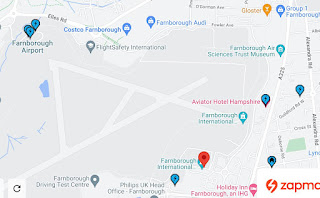Introduction
We're planning to go to the Fully Charged Live show in Farnborough in late April. We've had our 22KWh Renault Zoe for over 6 years. Our Zoe is AC-only charging, but can charge at 22KW, which means that we can travel decent distances - if 22KW charging posts are available.
Six years ago, the Ecotricity-sponsored Electric Highway chargers along UK motorways provided a relatively excellent means of getting around the country by AC charging. It (ironically) helped that even though there were few chargers, there were also few EVs, so there wasn't much competition. Today, most EVs charge via DC (CCS, though there are a few Leaf cars around that still charge via CHaDeMO) so there still isn't much competition for AC chargers.
Unfortunately, the 22KW AC Charging network in the UK has grown and simultaneously been trashed over this period. It is easy to describe why:
- The Electric Highway has been replaced by GRIDSERVE, which initially took out all the 22KW charging facilities and replaced them with nothing. Then they installed '22KW' charging points, which never charge at the full rate. GRIDSERVE do not seem to understand that spending 2hours charging up at 11KW or less is ABSOLUTELY UNACCEPTABLE. Bosses at GRIDSERVE, a message to you: why would anyone spend 2 hours charging up at your charging points? I mean, literally anyone? Your AC market is literally ZERO people who would want to charge at your AC charging points. No-one! ZERO!!!!!!
- Open competition against a total lack of key aspects of regulation mean that there are literally dozens of different charging apps you need to download onto your phone in order to charge. It was OK, when it was only the Electric Highway - it's not OK, when it's dozens of charging apps. And they are all variants on exactly the same thing. We only need one.
- Many, many, MANY charging points are broken. Currently we have to plan for at least 2 alternatives to the main charging point we want to go to. Why are there no requirements for charging point maintenance? It can't all be done remotely, e.g. a software upgrade won't fix slow BP chargers that have failed due to water ingress.
- Many charging points advertised as 22KW simply aren't. They don't charge faster than 11KW. For example, the ones at Bicester OX26 6BP. In this case, because I know they won't charge up at 22KW, there is no point in charging at them. YOU HAVE WASTED MONEY INSTALLING THESE CHARGERS. But what's worse is that because we no longer know if a proprietary 22KW charger will charge at 22KW, we can't risk using any of them, even by a different company, anywhere in the UK, unless there is proof that it's possible to actually charge at 22kW.
As it turns out, some companies' chargers really do work as advertised: BP Pulse (formerly Charge Master), Pod-Point and Swarco E-connect do work at 22kW (though some are broken).
The Plan
Getting to Farnborough involves going down the M40, where we've had problems charging a year ago. I can't see that it's any better now. There are GRIDSERVE charging points at Cherwell services after 57 miles, so that's out, because they won't charge at 22KW. There's nothing reliable that's close to that.
However, there's some charging points at Kidlington which is at about 67 miles:
Of them, only a single charging point is acceptable. The top blue one is out of the way; the remaining blue one I can't be sure about; the second BP one is out of order; the bottom one is GRIDSERVE, which don't charge at 22kW. That's a failure rate of 80%.
Moving on: there's a SWARCO E-Connect at OX1 4NA in Oxford, that's about 76.7 miles away, at the practical limit for the car. SWARCO seem to work. Then there's Westgate in Oxford where there's several 22KW charging points, but I don't know the company. Perhaps I can check.
So, this covers the mid-way charging, literally about half way there. Then we get to the Fully Charged Show Live at: Farnborough International Exhibition & Conference Centre. Here, I expanded the criteria to 7KW charges and even so, there seems to be only a few charging points.. like how is this viable given the number of people who are likely to go there by EV?
Conclusion
Underneath all of these woes is a simple reason: Our government, which has utterly failed to provide regulations that ensure a working charging network. This is 'liberated' free enterprise in action, a totally dysfunctional industry, free from any sense of responsibility to its actual users.
It would not have been hard to regulate it: the bullet points above describe what need to be done:
- Chargers should work as advertised, 22kW should mean exactly that, or a range of charging rates if uncertain.
- Every Charging point should be registered on Zap-map (or a national body) as it's installed, along with its capabilities.
- There should be at most one charging app to cover all charging points even from different companies. There should be access to contactless charging on all motorway charging points.
- Maintenance should be swift, again, it should be provided at a national level.
- Support should always be available 24/7 from a single national body.
- Charging locations should be distributed according to the need to cover the country, not just installed where the market penetration is highest.
- Adequate 22kW charging coverage should be supported until 80% of the cars that supported it are no longer on the roads.
In the meantime, I'm not sure we'll be able to make it to the Fully Charged Show from Birmingham in our Zoe.

